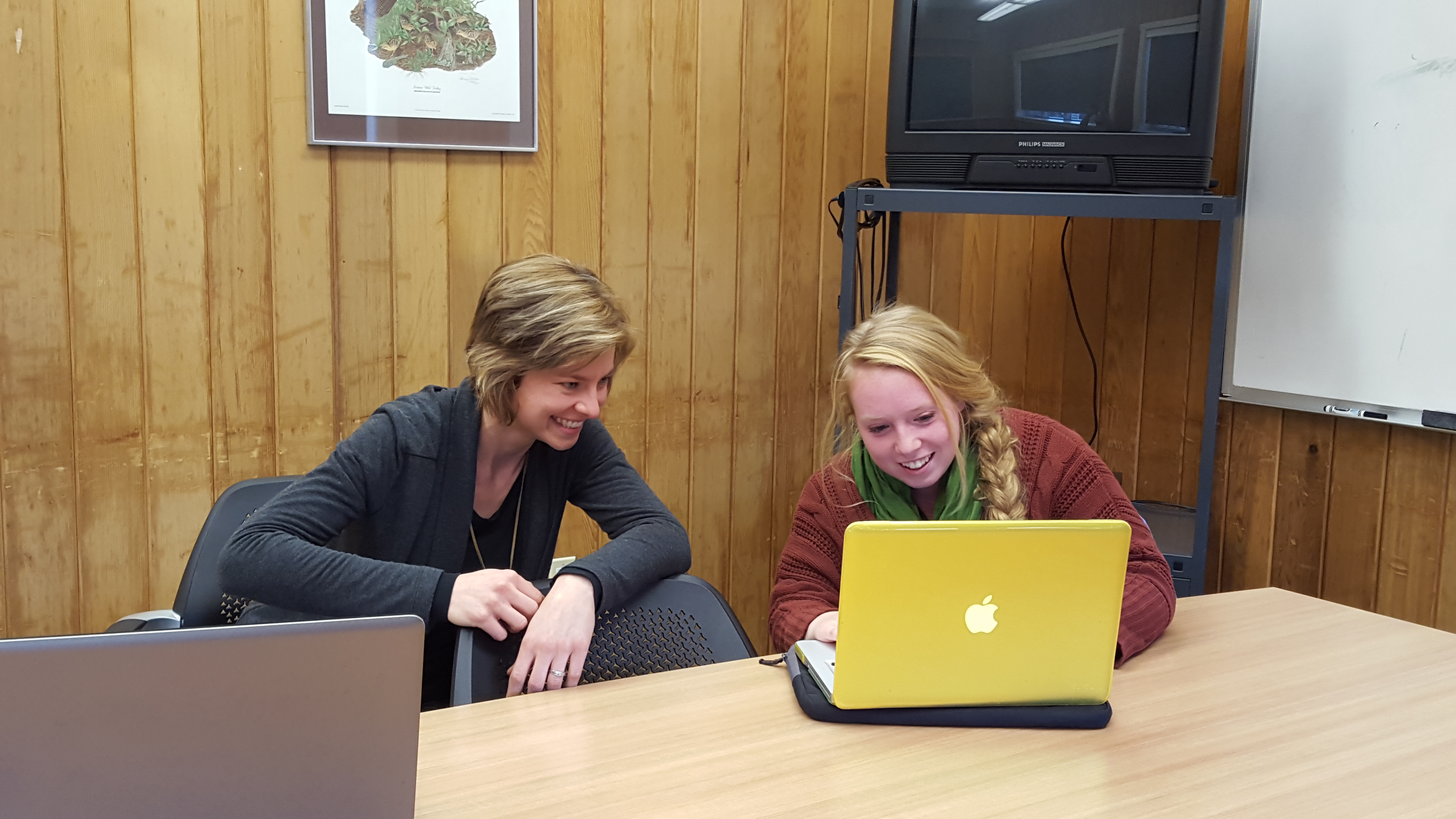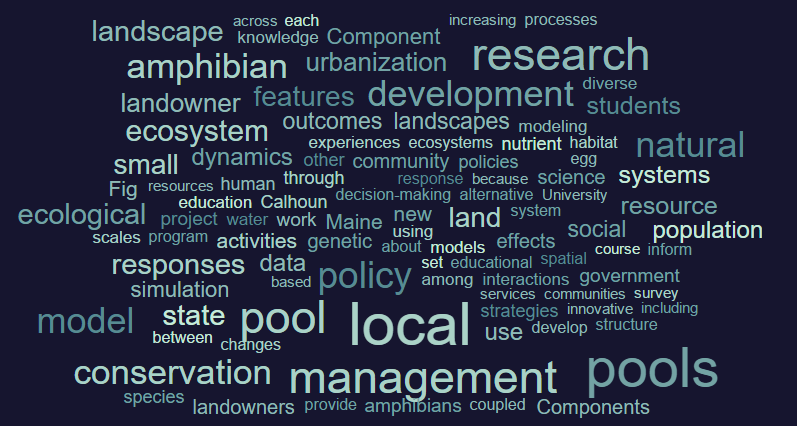Jared Homola, PhD Student, University of Maine
Is it possible for a geneticist to perform innovate research alongside an economist? Or for a political scientist to collaborate with an ecologist? The answer to these questions is not only a resounding “yes” but such collaborations are increasingly being expected of researchers interested in solving real world problems. Urbanization, for example, is often driven by an economic desire to convert land from a natural to a seemingly more monetarily profitable state, which in turn may account for various ecological changes.

Research funding agencies such as the National Science Foundation have recognized the importance of interdisciplinary collaborations. For instance, from 2012 to 2014, NSF increased spending on interdisciplinary research efforts by 210%1. Our own Of Pools and People research program was born out of an NSF call for proposals pertaining to Dynamics of Coupled Natural and Human Systems, a topic that is necessarily addressed by an interdisciplinary team. A word cloud of our project proposal to NSF reveals interdisciplinary themes woven throughout, including words such as “policy, government, and landowners” alongside “amphibian, genetic, and ecosystem.”

There are many challenges associated with working across disciplines. Those typically cited include difficulty communicating across fields that are laced with their own unique jargon and synthesizing quantitative data collected using unfamiliar methods and recorded in unfamiliar units. Although less frequently noted, this new mantra has also begun reshaping graduate education. As the funding goes, so goes the graduate student experience which is usually inextricably tied to grants and this new reality of requisite interdisciplinarity can be daunting from a student’s perspective. Using myself as an example, when someone asks what my Ph.D. will be in, I often hesitate before answering as I try to form a response that is simple enough to be useful. Through the course of my dissertation research, I will have had to apply concepts from fields including molecular biology, ecology, mathematical theory, computer programming, as wells as various social sciences to answer the questions asked by the grants that fund my research. Consequently, graduate education is increasingly becoming a tug-of-war between breadth and depth of expertise.
Since the inception of our project, the Of Pools and People team has been working hard to meet the challenges of working across disciplines. We have found the most important tactic for successful interdisciplinary research is frequent and frank communication. For instance, our entire team meets monthly to discuss our research and the graduate students meet weekly. These meetings are invaluable for receiving feedback on research as it progresses rather than at its conclusion. Communicating frankly- asking directly and frequently for clarification- has also been important. Although it can be a humbling experience, asking for a quick lesson from a collaborator on a concept from a field that you don’t normally work in is critical and often very productive. Most generally, if you keep an open mind, remain flexible, and stay positive, you’ll find interdisciplinary research to be a rewarding experience.
1Gewin, V. 2014. Interdisciplinary research: Break out. Nature 511:371-373.
